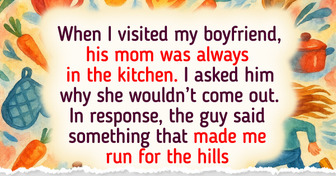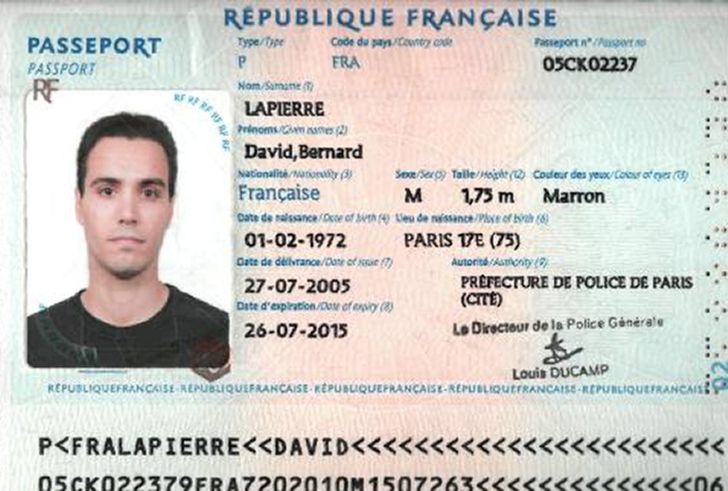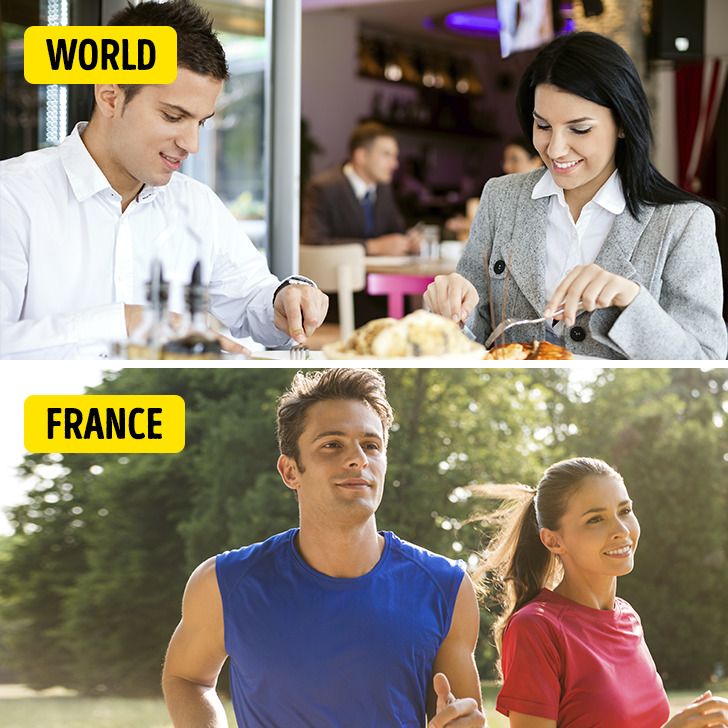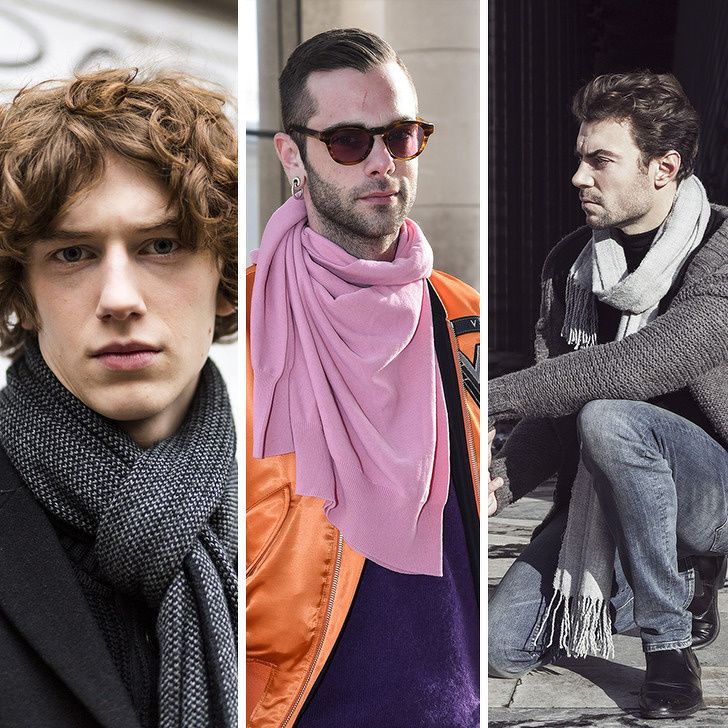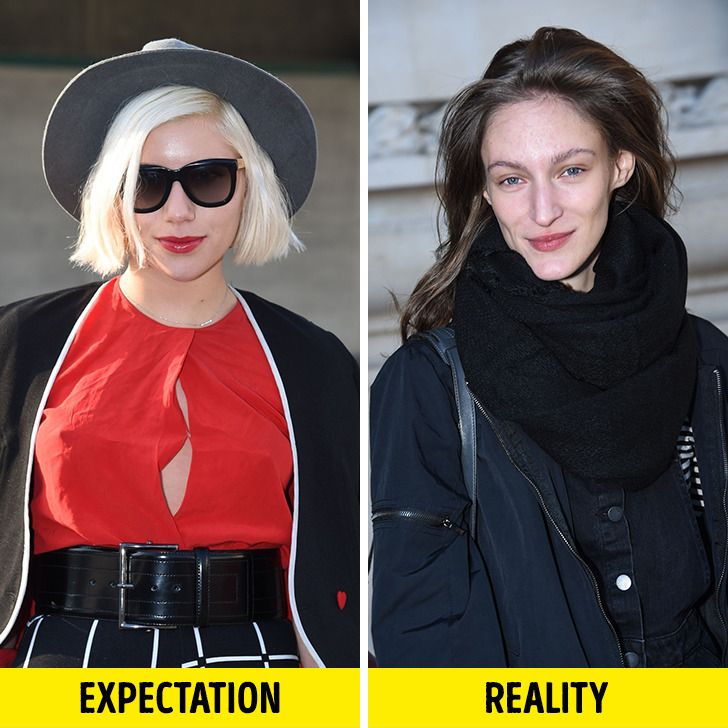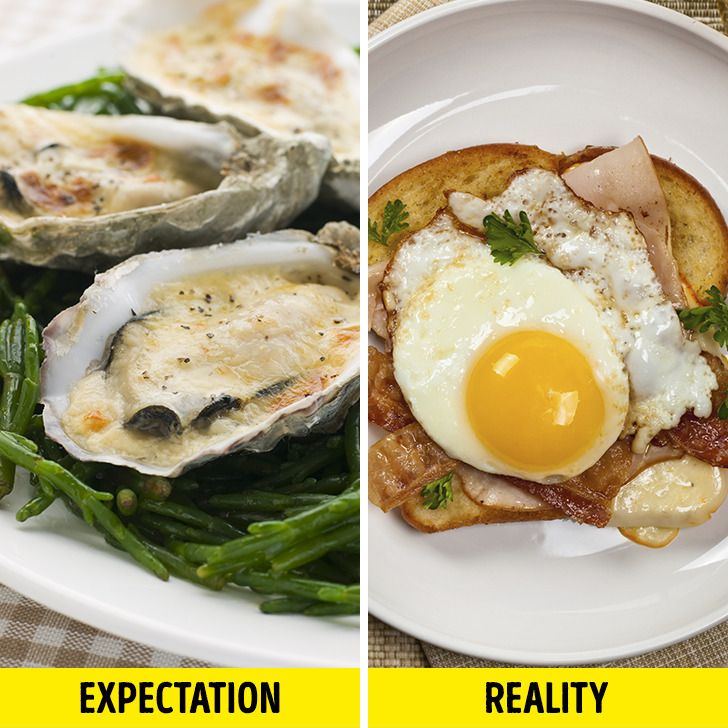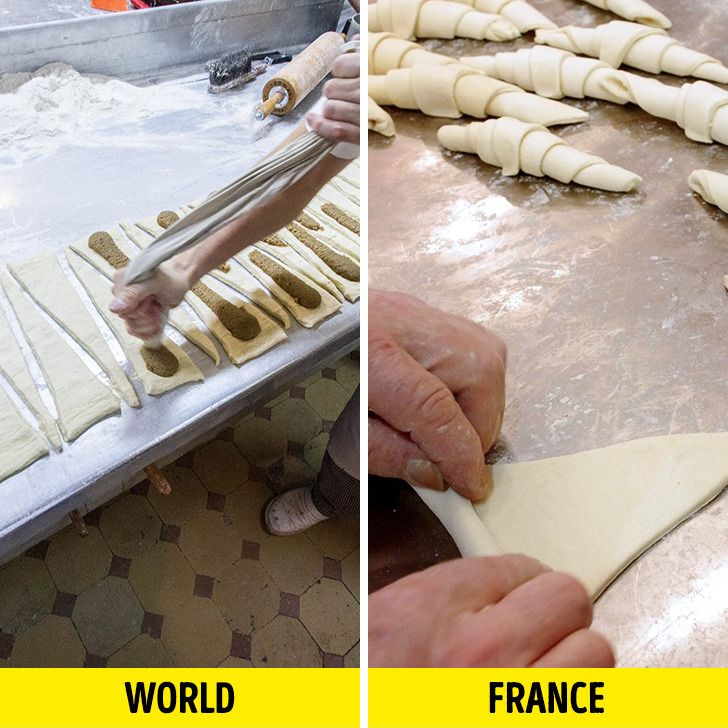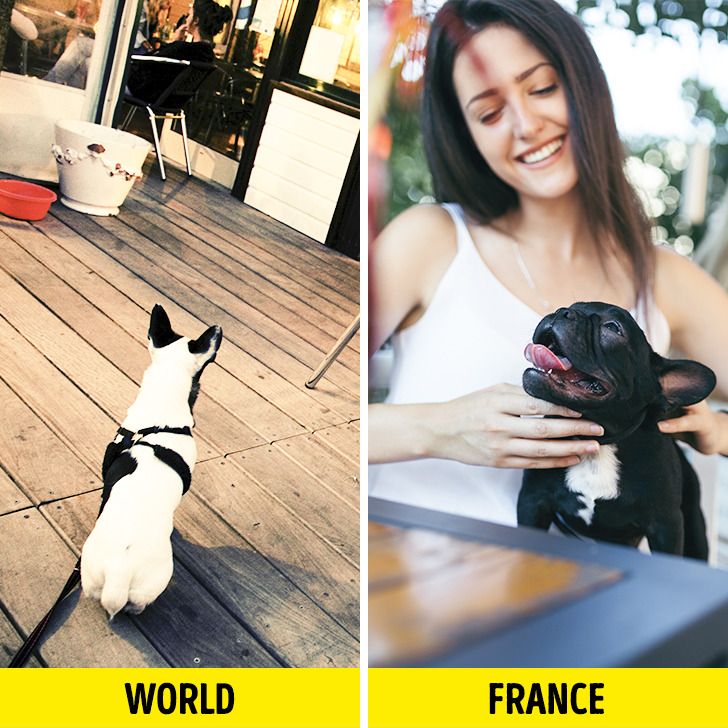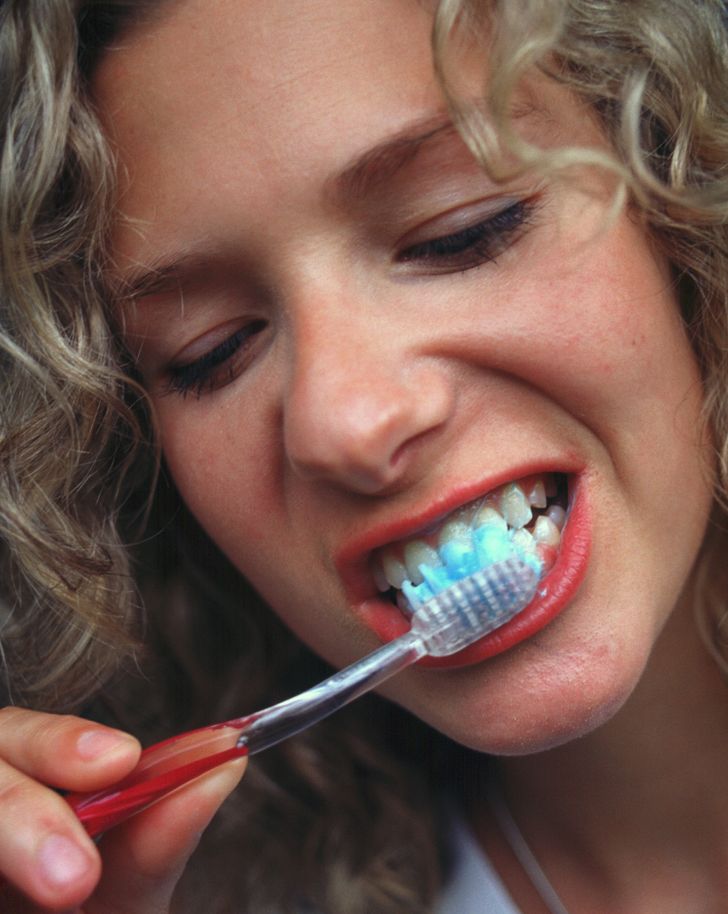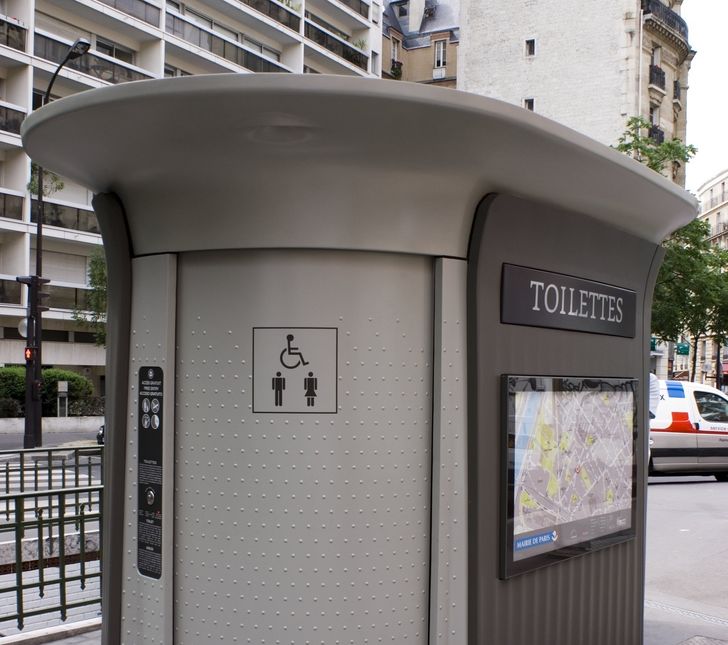I'm french. All of those facts aren't entirely true.
Previous generation of women (like born in the early 70's) had learn to sew, knit and cook at school and at home, now you can't learn that at school... Some men and women have learn it from their mothers, or private lessons... Lots of young adults are single, or later are divorced, and want to know how to not depend on another person.
Don't forget after WWII, lots of french women were widows, so they had to be independant to raise their children, and the children had to help around the house, boy or girl, and they raised their children the same, so we don't feel the need to ask for permission before dressing or having an activity, which doesn't mean we don't discuss it with out family or partner.
And if you buy a french baguette from a good bakery, it will still be edible the next day ! ?
20 Facts About the French We Had to Double-Check to Believe
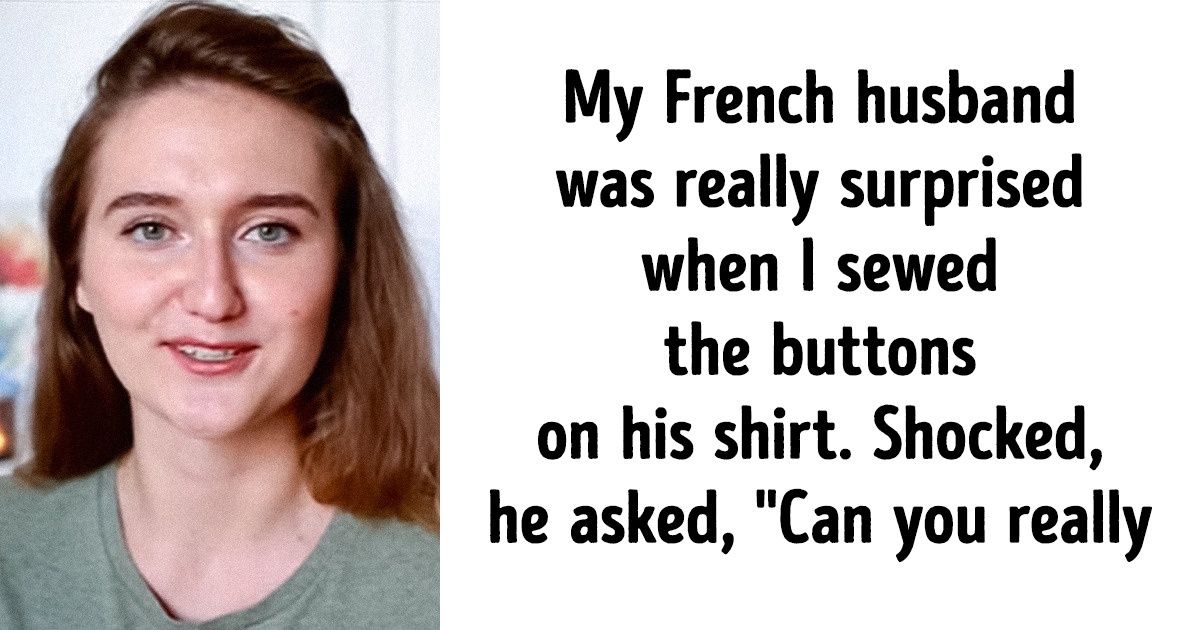
There are probably a countless number of stereotypes about each country and nation. Some of them are true and some of them are just strange. France and the French are lucky in this aspect, because they are believed to have very positive qualities: elegance, being stylish, and being passionate. Of course, these things are true, but we should all understand that behind every stereotype, there is a rich and deep national character.
We at Bright Side wanted to tell you about the differences between the French and people from other countries.
1. French people kiss when they meet each other and the number of kisses depends on the region
In France, people kiss each other when they meet, which is very confusing for tourists. The thing is, the more to the south the region they are from is, the more times people kiss. There is even a special website where you can find out how many kisses should be given in a certain region. Usually, the number varies from 1 to 4.
2. Many French people have 3 names on their passport. Also, there is information about their height and eye color.
In a French passport, you can see not only the person’s first and the last name. Many French people have 3 names. For example, when you meet a French person, they might introduce themselves as Jean. But if you look at their passport, it might say that their name is Jean Michele Paul. Usually, they are named after their godparents — which is where all these names come from. Also, the passports of French citizens have information about their height and their eye color.
3. French women are really independent.
The French are afraid of any kind of sexism. This is why they don’t have any gender role divisions — men can cook dinner, do all the things around the house, and so on. More than that, they are very surprised when they meet women that can sew. According to blogger Lena Luciez, who married a French man, her husband was really surprised when she sewed buttons to his shirt. Shocked, he asked, “What, you can sew?!” She said that she was able to sew a button because she had taken lessons in school. The husband was shocked and said that it would be inappropriate for France, because everyone should be equal in their country.
Besides, in France, it is not normal to tell your partner what to do. The main phrase in any relationship is “do as you see fit.” So, French women never ask their partners what to cook for dinner, which dress she looks better in, and stuff like this. Every person decides what is best for them and makes all decisions on their own.
4. The French say “no” to any question or request.
In France, it is all about context. So, the meaning of all words should be deduced from the context that they’re used in. But in general, the first thing French people say to any question, suggestion, or request is “non” which means “no.”
In his show, French comedian Olivier Girault explains this habit this way, “Answering ‘non’ gives you the option to say ‘oui’ [yes] later; [it’s] the opposite when you say ‘oui,’ you can no longer say ‘non’! We must not forget that the French are a people of protest, and a protest always starts with a ‘non.’”
A synonym of “non” is the phrase “it may be hard to do.” So, you should understand that “non” is not always a final answer, it is often an invitation for negotiation in order for them to understand your position better.
5. Lunchtime is 2 hours long.
In many French offices, banks, and public institutions, the lunch break is not one hour long, but 2. The thing is, the process of eating food is considered to be very important in this country — employers make sure than their employees have enough time to go home and eat without being rushed. Many people use this long lunch break to eat in the nearest park and relax there.
6. When something is wrong, you call the firemen in France.
No matter what kind of trouble you find yourself in when in France, firemen will most likely be the ones to help you. They often arrive faster than any other service and they can give you first aid and do almost any rescue operation. The French are very respectful to firemen and the number you should dial in an emergency situation is 112.
7. In France, there is no central hot water supply.
In big cities, water is heated in collective boilers. Central heat only works in the lobbies of buildings. And every apartment has its own electric radiator that is turned on manually. You can regulate the temperature however you want. But there is one problem. If you set it to a high temperature, you may have to pay a huge bill. Also, old houses don’t have the best wiring, so sometimes you have to choose which you need more — a hot stove or a warm radiator.
So, most of the time, the temperature in a French apartment in the winter is never higher than 68°F.
8. French men are really stylish
It is not a myth that the French are born with a sense of style. French men are really able to make an interesting look using the most ordinary and basic clothes. And they don’t really wear ultra-trendy clothes, but they are charming anyway. And yes, they really love scarves and know how to wear them.
9. French women love dark colors and often prefer comfort to beauty.
There are legends about the style and the charm of French women. A typical image you have in your mind when you think of a French woman is an elegant lady who is wearing a slim-fitted trench, high heels, red lipstick, and, maybe, a cute hat. However, in real life, French women base their image more on what is comfortable and practical. This is their most important rule. So, the French charm is comfort and a bit of carelessness. Their favorite colors are black, grey, and dark blue. Also, French women are quite thrifty, they don’t spend a lot of money on clothes from new collections. They wait for sales. Their best skill is being able to dress so that nobody understands that all the things were specially chosen for their look.
By the way, many houses have cafes on the ground floors, so any French woman can go and drink some coffee just wearing her pajamas.
10. On Sundays, shops aren’t open.
Many people often spend their weekends on things which have nothing to do with rest like cleaning, shopping, and stuff like that. For French people, Sunday is a family day when they prefer to rest and they do things like go out of town, ride bicycles, and so on. The thing is, in France, almost all shops are closed on Sundays. So, if you need something, you should get it on Friday or on Saturday.
11. They really love bread.
A regular baguette is what French people eat every day, usually adding different ingredients. Also, one of the most popular meals in France is a sandwich with a fried egg on top, called croque-madame or a croque-monsieur (without an egg). They don’t eat the stereotypical frog legs and foie gras every day. Most French have never even tried these things.
12. French croissants don’t have any filling
Croissants are basically one of the symbols of France, but this bakery item was actually invented in Vienna. However, in France, they are made exclusively from puff pastry. But the true French croissants are the ones that don’t contain any filling. No jam, no cream, no chocolate — nothing at all.
13. They don’t leave baguettes for the next day.
Baguettes are a kind of a symbol of France. Every day, in Paris, more than 500,000 baguettes are sold. However, today it is soft and crunchy but tomorrow, it will be an inedible stick. This is why the word baguette is translated as stick.
14. Don’t order andouillette.
Andouillette is a sausage made with the intestines, a classic French meal. However, this may be quite an unusual meal for an unprepared tourist. The thing is, it has quite an unpleasant smell. In France, they even say, “The worse andouillette smells, the better it is.” So, not everyone is going to enjoy this meal.
15. In cafes and restaurants, don’t ask for a menu.
In French, the word menu is a set of meals, something like a business lunch. So, use the word carte to ask for a menu or you may be misunderstood.
Also, when you need to call a waiter, don’t call him garçon because this word means boy. It is better to use monsieur or pardon to attract his attention. Also, don’t forget about leaving a tip.
16. You can go to a restaurant with a dog and they will give you water and bread for free.
The French adore dogs, this is why they are quite okay with them being in cafes and even restaurants. So, if you are traveling with a pet, you can be sure than the French will be hospitable and friendly to you and your dog.
Also, in France, they can serve water and bread in cafes and restaurants for free — this law was first made by Napoleon.
17. Most French people brush their teeth after breakfast.
It may seem that the French don’t brush their teeth in the morning at all. But in fact, they do it after breakfast. At first, this might seem a bit weird, but if you think about it, it actually makes sense. Look, if you brush your teeth before breakfast, you won’t be able to really enjoy the taste of the food — the flavor of the toothpaste will make the taste more dull. And it is really important for the French to enjoy the food they eat. Besides, from a hygiene standpoint, it is also better to brush your teeth after the meal, not before.
18. The French drink tap water.
In France, they have a good water filtering system. Of course, it depends a lot on the region you are in, but in general, the quality of water is pretty high, so you can easily drink the tap water when you are in France.
19. Until recently, women in France were legally prohibited from wearing trousers.
In 1800, the French authorities adopted a law that said that women had to get permission from the police to wear men’s clothes like, for example, trousers. The law was invented to make it harder for women to get access to certain professions. Later, the law was altered a bit, so women were allowed to wear trousers when they were riding a bicycle or a horse.
Believe it or not this law wasn’t canceled until 2012. Obviously, nobody had been actually following it for decades, but it was still in the books until recently.
20. In Paris, public toilets are free.
The public toilets in Paris are not only free, but they can also be used 24/7. If you see a green light, it means that the toilet is not occupied. The only thing you should keep in mind is that you can’t enter the toilet right after someone leaves it. Wait for the door to close, the toilet will wash itself and then you can enter.
By the way, in France, there is a law that says that all cafe owners must have a toilet. So if you really need a toilet, you can always just go into any cafe.
Have you ever been to France? Have you noticed anything interesting about the French lifestyle?
Comments
Some shops are opened on sunday, depends on the location and business genre.
Not all the restaurants allowed dogs, you may want to check before. Sometimes they allow them with a leash near your table.
What is true in Paris may be only in Paris...
I mean, i don't know who gave you this facts and who told you they were double check, but My oh My ! they're all so full of shit.
Please, shut this post down. It's a shame for you, making you the fools in the joke...
Women can sew, as men, but it's more often women a their mother or grandmother taught them, and not the boys as the misconception of what men / women can / should do continue to exist.
Shop are open on sunday in big cities,l ike in the U.S.. But if you're in a rural area, it'll be closed yes.
Women often ask their men if this or that attire is fine and if they find them pretty in them, as everyone makes with their loved one or besties...
Men aren't as stylish as you tend to think. Most of them wear jeans a pull-over / sweater... moreover in the suburbs it's more likely jogging and sweater.
Lunchtime is mostly 40mn during work week, less if you're in big cities. it can be up to 1 hour ; but 2 hours lunch are " rarissime" ( do you think companies would pay for employee who would have such long lunch break every day???)
The 112 phone number isn't te firemn, it's a global number for all E.U. member countries.
When you call 112 you'll get in touch with a call center deciding if you need firemen, EMT, cops or something else.
Central heating is also very commun in cities with big flat lot, or in popular district.
But there's no central heating for town with individual housing solution.
For the building with central heating, it's working from Oct. 15th to April 15th.
It's for the lobbies and the flat.
The recommended temperature in any given room is around 65°F, so yes, it's a bit cold, but, you know, better for the babies, for the blood pressure, for the environment...
You can ask for a menu, cause if the waiter still haven't given you the "carte", he will bring you the menu and not the 3 courses meal.
And not often will your dog be allowed with you as there's a law again animals in food shop ( bakery, restaurant, etc.) so further less will you be gratis bread and water for them...
So please, stop the b*llshit and don't ask a stranger to speak about the very essence of a country, unless it's been living there for long enough to have been in big and small cities and lived 2 different states
Those bloggers do not shine by their ability to step back before posting and are much more characterized by their tendency to exacerbate biases, which is exactly the case here, except from a couple of common information that everyone knows already. This article only shows a narrow-minded view of France, probably coming from small talks and bla-bla with one or 2 French people, met during a photo shot session...
I've only been to Paris, but I loved it. A friend who lived there at the time bought croissants specially so we could have a "French breakfast". Didn't have the heart to tell him that in South Africa the croissants are just as good!
Related Reads
18 Women That Took Part in Transformation Shows and Became Completely New People

What the Royals Would Look Like If They Perfectly Fit Modern Beauty Standards

6 Gestures That Show a Man Is in Love With You and 6 Signs That Show He’s Using You

16 People Who Blossomed Into Beautiful Swans After Their Teenage Years Had Passed
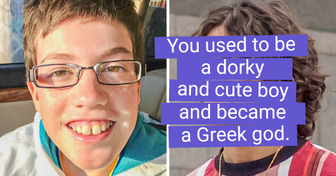
16 Moments That Remind Us to Stay Kind Even If the World Turns Ice Cold
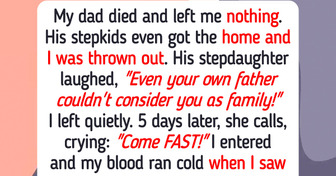
20 Stories That Remind Us to Stay Kind Even When Life Stops Playing Fair
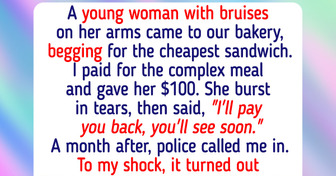
I Refuse to Forgive My Wife for What She Did to My Son

18 Stories That Prove Kindness Can Come From the Most Unexpected Places
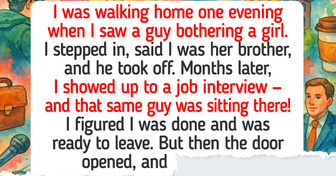
I Refuse to Help My Pregnant Sister, and I Don’t Feel Guilty

15+ Stories Proving That Hiring a Repairman Is Always a Total Lottery
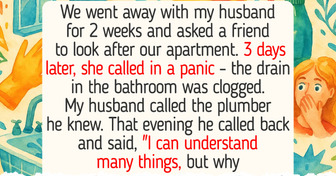
18 Seniors Whose Sharp Wit Proves Humor Only Gets Better With Age
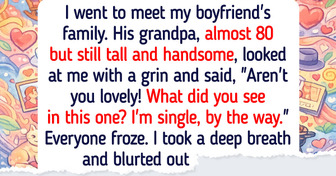
20 People Who Called Off the Wedding and Don’t Regret It for a Second
